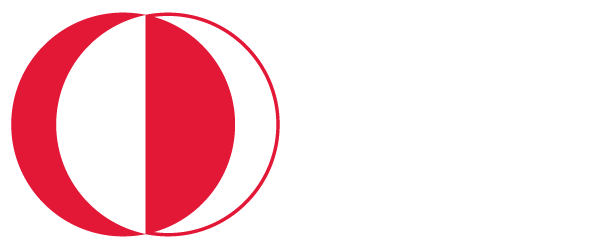Frequently Asked Questions
ABOUT OPEN ACCESS AND INSTITUTIONAL REPOSITORY
What is an Institutional Repository?
It is a system in which the scientific and intellectual information produced in an institution is archived, protected, indexed, and made accessible to the electronic environment.
What is the function of an Institutional Repository?
Institutional Repositories contribute to the ability of organizations to manage their information assets and to measure corporate research and productive activities.
What is open access?
Open access means that the scientific literature can be accessed, read, saved, copied, printed, scanned, indexed, linked to full text, transmitted as data to the software and used for any legal purpose without financial, legal and technical limitations through the internet.
Why should I prefer an open-access platform?
- It sets scientific information free by removing limitations of pricing and licensing
- Provides free access to scientific and intellectual information produced in the institution
- Provides “Fair Use Policy”
- Contributes to the scientific impact of the study by increasing the recognition and visibility
- Increases citation rates
- Enables researchers to look at the literature from a wider perspective
- Contributes to scientific communication
What are the benefits of open access to the author/researcher?
- It makes the work more visible, accessible, and increases the citation rate.
- Allows authors to share their work freely.
ABOUT OpenMETU
What is OpenMETU?
OpenMETU is the Institutional Repository of METU that provides the accessibility of scientific information produced at METU through the internet without financial, legal, and technical limitations.
What is the significance of OpenMETU for METU?
- OpenMETU collects, stores, and facilitates the management of university information assets.
- Presents the university to potential shareholders and increases cooperation.
- Contributes to the evaluation of institutional research and scientific production activities.
For information about Institutional Repositories in the world; http://v2.sherpa.ac.uk/opendoar/
Is there a fee to upload to OpenMETU?
You can upload all your research outputs and publications to OpenMETU free of charge.
Does Open METU have a legal basis?
OpenMETU is based on Articles 4/c and 12/c of Higher Education Law No. 2547.
In addition, Open Access and Institutional Repository Policy of the Council of Higher Education, Open Access and Institutional Repository Policy of Middle East Technical University, and METU's Directive on Receiving, Storing and Accessing Electronic Copies of Graduate Theses form the basis of OpenMETU.
What is OpenMETU's policy?
It is of strategic importance for our University to adopt the essential purpose of conducting high-level education and research in the fields of science and technology and present the scientific knowledge produced to the service of science. The scientific knowledge produced by our university must be freely accessible within the framework of ethics and laws; because freedom of access to information is a crucial support factor for all researchers to ensure the creation of qualified information and products and services based on it. In this context, OpenMETU aims to make the scientific knowledge produced at our University accessible.
What is the purpose of OpenMETU?
- To provide systematic and accurate indexing, preservation and transfer of scientific knowledge to future generations,
- To ensure the functioning of METU Institutional Repository and Open Access System strategy by international standards,
- Providing fast and free access of data indexed in OpenMETU to all users from a single center,
- To increase the impact factor of publications and to get more citations with the more widespread use of OpenMETU's scientific studies,
- To increase the national and international respectability of METU,
- To contribute to the development of national and international cooperation by supporting scientific communication.
Why should I upload my research to OpenMETU?
- OpenMETU ensures that the stored scientific studies are archived in the electronic environment at international standards and become more visible and accessible.
- Today, funders expect researchers to publish their study on an open-access platform. OpenMETU provides this opportunity at the institutional level.
- OpenMETU contributes to social development beyond the academy as it provides free access to scientific studies.
Who can upload research to OpenMETU?
METU members and students can upload their research outputs to OpenMETU.
Non-METU members can also upload course materials to METU OpenCourse METU OpenCourse platform where METU open course materials are available.
When should I upload my research output and article to OpenMETU?
You can upload your article to OpenMETU immediately after it is accepted or before it is published.
The embargo period for scientific and intellectual studies is limited to a minimum of 6 months and up to 24 months. At the end of this period, the articles will be accessible.
The bibliographic information of your studies will be made available after the supervision of library staff.
How do I upload my research outputs and publications to OpenMETU?
You can upload your publications or research outputs to OpenMETU by following the process in the OpenMETU guide.
To upload your thesis, you can follow the processes at https://lib.metu.edu.tr/thesis-submission-guide
Who is responsible for uploading publications to OpenMETU?
It is the author's responsibility to upload publications to OpenMETU.
Can I upload my publication with multiple institutions and multiple authors to OpenMETU?
METU members and students can upload their study in cooperation with multiple authors and multiple institutions to OpenMETU.
Who uploads publications with multiple authors to OpenMETU?
In publications made by more than one METU member and student, one of the authors can upload the publication to OpenMETU by including the DOI number and the names of other authors.
Can I upload the outputs of my studies that I produced before I started working at METU?
Publications made in another institution before METU can be uploaded to OpenMETU.
What can I upload to OpenMETU?
- Articles,
- Theses,
- Book and book chapters,
- Presentations about congresses, conferences, and seminars,
- National/international projects and designs,
- Technical and statistical reports,
- Patent / utility model documents,
- Open lectures and lecture resources,
- Software products (game, virtual/augmented reality simulation),
- can be uploaded to OpenMETU
Can I postpone access to my thesis while patenting?
In case the patent application is made, or the patent process continues, the institute or faculty board of directors may decide to postpone the opening of the thesis for two years upon the recommendation of the thesis supervisor and department.
In addition, upon the recommendation of the thesis advisor and the assent of the institute, access to theses that contain new techniques, materials and methods that are not yet turned into articles or protected by patents, and that contain information and findings that may create unfair benefits for third parties or institutions if shared via the Internet, may be prevented from open access for a maximum period of six months with the justified decision of the faculty board of directors.
Only bibliographic information of theses that cannot be published on account of copyright/embargo is opened to OpenMETU.
How is the confidentiality status of theses decided?
The University Executive Committee decides on the confidentiality of graduate theses on safety, security intelligence, defense and security, health, etc. which are prepared within the University and which concern national interests or security.
The confidentiality decision regarding the postgraduate theses prepared within the framework of the protocol of cooperation with institutions and organizations is made by the University Executive Committee upon the recommendation of the relevant institution and the approval of the institute or faculty.
Theses with confidentiality decision are notified to the Higher Education Council.
Can I upload my article to OpenMETU before publishing?
A pre-printed version of any article or scientific study, which has not undergone an evaluation process by referee/editorial board, may also be archived in OpenMETU.
Are there any limitations in terms of copyrights when I upload my article to OpenMETU?
You can learn about your publisher's publishing policy through the SHERPA / ROMEO database. (https://v2.sherpa.ac.uk/romeo/)
When does the publication uploaded to OpenMETU become accessible?
The publication uploaded to OpenMETU will be accessible immediately after all checks by the Library staff are made without copyright and embargo restrictions.
In graduate theses (patent application, article preparation or confidentiality by the university/institute), the embargo period is limited to at least 6 and up to 24 months. At the end of this period, your thesis will be accessible.
AUXILIARY TOOLS
Where can I find the copyright status of my publication?
You can learn the copyright status of your publication from SHERPA/RoMEO. SHERPA/RoMEO summarizes the open access conditions of publishers and classifies the rights granted to authors by color.
What is embargo?
It means that the scientific and thesis studies in OpenMETU are closed for a certain period due to various reasons (publisher policy, article publication, patent application, institutional and national interests, etc.).Generally, embargo periods range from 6 to 24 months, though some publishers may require an embargo of up to 48 months
What is Preprint or Author’s Original Manuscript?
It refers to the initial version of any article or scientific study that has not undergone an evaluation process by the referee/editorial board.
What is Postprint or Accepted Manuscript?
It refers to the final form of an article or scientific study that has been decided to be published after the evaluation and arrangement of the referee/editorial board.
What is Green Road?
It refers to the open access option of your research outputs uploaded to OpenMETU.
When performing this upload, check which format of the publisher (preprint, postprint, publisher edition) allows open access. You can use https://v2.sherpa.ac.uk/romeo/ for this.
Library staff checks that the appropriate version has been installed and confirms the access status.
What is Golden Road?
It is the publication of an article in an online journal with open access. On the Golden Road, publishers charge a fee from the authors or institutions. However, the reader can access the published studies free of charge.
What is the approach of funding organizations to open access?
A large number of funders require or support the publication of a study on an open-access platform.
Where can I find open access policies of funders?
SHERPA/JULIET shows the open access policies of research funders. For more information; http://v2.sherpa.ac.uk/juliet/
What is ORC-ID (Open Researcher and Contributor ID)?
It is a permanent digital identifier that distinguishes you from other researchers and supports the automatic connection between your professional activities. https://orcid.org/register
How to register an ORC-ID?
You can register your ORC-ID at https://orcid.org/register by following the process.
How are my research data preserved at OpenMETU?
Your data that you make open accessible by uploading to OpenMETU is licensed under a Creative Commons open license.
For more information; you can visit https://creativecommons.org/.
What is Creative Commons?
Creative Commons is a non-profit organization that enables the use and sharing of intellectual, cultural, or artistic creative work. It allows the creator of the work to determine the terms of use on the internet. Therefore, the author may reserve some rights. CC (Creative Commons) licenses are not an alternative to existing copyright and intellectual property rights; it works together. Today there are six different CC licenses (http://creativecommons.org/licenses ) , and CC is represented in more than 90 countries around the world.
For more information; https://creativecommons.org/
What is the open access policy of the Council of Higher Education (YÖK)??
The Council of Higher Education (YÖK) took the agenda of establishing and spreading the "Open Academic Archive System" at international standards in all universities in Turkey.
(https://www.yok.gov.tr/Sayfalar/Haberler/acik-erisim-ve-acik-bilim-calismalarina-baslandi.aspx)

